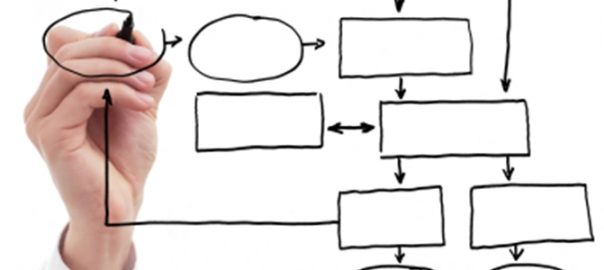In this blog post, Dr Caroline Edwards, Executive Director, Open Library of Humanities and Senior Lecturer in Contemporary Literature & Culture, Birkbeck, University of London asks: How do we ensure that a flipped diamond open access journal can remain independent? How do we prepare for the long-term financial security of flipped journals and protect against their potential vulnerability to commercial acquisition in the decades to come?
Flipping academic journals to diamond open access (OA) presents a series of challenges to an academic publisher. You need certain niche competencies. Firstly, nothing happens without the complete trust of an editorial team that shares your appetite for risk. Then, you need the backing of an entire academic community, willing to follow the editorial team to a new journal (in cases where editors don’t own the journal IP, which is most cases) and undertake a boycott of the old “zombie” title. Underpinning all of this, you need the financial and technological resources to provide the necessary infrastructure for the flipped journal in perpetuity, to offer it a safe home with a long-term future that doesn’t require any author fees. This involves things like setting up and maintaining a new journal site, running a digital publishing platform for managing submission, review, and production processes, having the capacity to manage metadata integration with university library catalogues and discoverability databases, providing memberships at robust digital preservation organisations, and ongoing research and development to stay abreast of rapid changes within the digital publishing landscape. The list goes on.
The growing list of journals flipping to diamond OA from their commercial publishers is well known. Retraction Watch keeps an up-to-date list of editorial boards that have resigned from for-profit models and moved their titles to not-for-profit, community-governed models. Each has its own story, told across published statements, academic blogs, and in newspaper articles covering high-profile editorial resignations and academic boycotts. But what gets talked about less frequently is the community governance structure that will support the journal moving forwards. How do we ensure that a flipped journal can remain independent? How do we prepare for its long-term financial security and protect against future vulnerability to commercial acquisition in the decades to come?
At the Open Library of Humanities (OLH), I spend much of my time talking to editors about their journals. There is a depressingly common story. It usually goes something like this. Many academic journals were launched between the 1960s and 1980s, in a collaboration between university professors and small or independent publishing houses. Things worked pretty well until their small publisher was bought out in the 1990s or 2000s by a larger company, often overseen by a global parent company. They muddled along with a high turnover of staff on the publisher side. Over time, the publishing managers became harder to get hold of, production was outsourced overseas, and editors became increasingly aware of a decline in production quality.
With the acceleration to open access in the 2010s, editors came under pressure to double or triple their article acceptance rates – with a drop in subscriptions revenue, commercial publishers had to recoup costs via article processing charges (APCs). The more volume they could pump out, the better their profit margins. Even when journal editors rejected unsuitable or poor-quality articles, publishers found a way to fast-track this academic content by surreptitiously channelling it through their digital platforms to their hundreds of other journals using the same platform. Not all editors were even aware that the transfer of rejected articles had taken place.
If the Editor(s)-in-Chief had the temerity to stand up for their academic principles and refuse to increase their journal’s article acceptance rates, at this point they could face legal challenges or dismissal. In several explosive cases in recent years, Editors-in-Chief have been fired by their commercial publishers after refusing to back down over these issues. Sacking an internationally renowned editor whose reputation has become synonymous with the journal’s own reputation isn’t for the faint-hearted. It says something about the desperation of commercial publishers and their shrinking profits that they would be willing to trash a journal’s reputation so comprehensively – among the very academic communities whose uncompensated labour produced that reputation in the first place.
At this point in my conversations with editors, I ask a difficult question: Who owns the journal? “The publisher” they say, or “we don’t know.” Sometimes they reply: “The founding editor has passed away; we’ve asked their children, but no one can find any paperwork.” Without the rights to the journal title, its name, and logo, editors must set up a new journal. Ensuring the continuity between the old (now trashed) journal title and the new journal title requires coordinating a mass resignation of editors and authors from the old journal, preferably along with a boycott by peer reviewers for the foreseeable future.
At the OLH we’ve spent almost a decade flipping academic journals to diamond OA, supported by a growing number of libraries worldwide who share our vision for a not-for-profit academic publishing future. It wasn’t called “diamond” when we launched in 2015, but the term has come to mean not-for-profit and community-governed OA. Our publishing model is inspired by an explicitly political project – if the OLH and similar university-owned journal publishers are to thrive, they need to divert university library funding away from the big 5 commercial publishers (Elsevier, Wiley, Taylor & Francis, and Springer). This happens hand-in-hand with library advocacy. When expensive journals flip to diamond OA, librarians are empowered to cancel individual journal subscriptions. In the age of big bundles and journal packages, journal flipping allows them to renegotiate extortionate deals with commercial publishers in light of the shrinking number of titles in each package.
Since launching as a publisher in 2015, the OLH has flipped 20 journals in this way. It hasn’t always been easy, and we have learned a lot along the way. In cases where journals own their own intellectual property (IP), usually via a scholarly association or legal governing body, the process of migrating decades of back content requires highly complex, skilled technical work. In cases where journals don’t own their IP, editors are unable to take the journal title with them. In these cases, a new journal needs to be established to continue the mission of the original title. This leaves behind zombie journals; the undead husks of formerly respected titles, that commercial publishers refuse to close but cannot run when the entire scholarly community has agreed to boycott it. The case of Wiley’s Journal of Political Philosophy, which relaunched with the OLH as Political Philosophy in February 2024, is a case in point.
Some of the journals that the OLH has flipped to diamond OA have set up a nonprofit organisation to protect themselves. Zygon: Journal of Religion and Science, a former Wiley journal that dates back to 1966, was able to do this because the original editors had the foresight to protect their IP before their publisher Blackwell was taken over by Wiley in 2007 (the journal had previously been published by two different university presses, the University of Chicago Press (1966–1978) and Wilfrid Laurier University Press (1979–1989)). The Zygon editorial team set up its own not-for-profit scholarly corporation in Chicago in 2019, following a joint venture established in 1965 among founding partners. As a 501(c)(3) organization, the Zygon: Journal of Religion and Science NFP not-for-profit scholarly corporation is a charitable organisation exempt from federal income tax. This route is being taken by other OLH journals including Theory & Social Inquiry (formerly Theory & Society), Political Philosophy (formerly the Journal of Political Philosophy), and Free & Equal: A Journal of Ethics and Public Affairs (formerly Philosophy & Public Affairs).
Several of the OLH’s journals have been owned by scholarly associations since their inception, including Quaker Studies (founded by the Quaker Studies Research Association (QSRA)), Architectural Histories (founded by the European Architectural History Network (EAHN)), Digital Studies / Le champ numérique (founded by the Canadian Society for Digital Humanities/Société canadienne des humanités numériques (CSDH/SCHN), Marvell Studies (founded by the Andrew Marvell Society), Open Screens (founded by the British Association of Film, Television and Screen Studies (BAFTSS)), and The Parish Review (founded by the International Flann O’Brien Society).
In other cases, independent journals joining the OLH have made the decision to affiliate themselves with scholarly societies. This has been the case for [in]Transition: Journal of Videographic Film & Moving Image Studies, which has become the official video essay journal of the Society for Cinema and Media Studies (SCMS), and C21 Literature: Journal of 21st-century Writings, which became the official journal of the British Association for Contemporary Literary Studies (BACLS) when the new association was founded in 2017. This kind of affiliation secures the community governance of journals. Scholarly associations have articles of association that usually include the criteria for appointing journal editors, terms of office, and processes for collectively undertaking decisions about the journal’s functioning and health.
Another route to long-term protection against commercial acquisition is for journals to join forces. This was the approach taken by 3 of the OLH’s journals who resigned en masse from Elsevier in 2015 – Lingua (which relaunched as Glossa), LabPhon, and the Journal of Portuguese Linguistics. Editors of these titles set up a community organisation, LingOA: Linguistics in Open Access as a Dutch Stichting (literally a “foundation”), a not-for-profit legal entity with limited liability similar to a trust, which is controlled by a board of directors and cannot have any shareholders.
With support from the Center of Science and Technology Studies at the University of Leiden, Radboud University Library, the Netherlands Organisation for Scientific Research (NWO), the Association of Dutch Universities (VSNU), and the Royal Netherlands Academy of Arts and Sciences (KNAW), LingOA was able to provide financial support for the journals beyond their funding agreement with the OLH. One of the OLH’s newest journals, Syntactic Theory and Research (STAR, which left Wiley) has also joined the LingOA Stichting.
Other journals that have joined the OLH in 2023-2024 will need to establish their own legal and ownership entities, and we continue to offer help and advice to editorial teams undertaking this important work. Our goal at the OLH is to liberate university research from commercial control. Flipping journals to diamond OA is the first step; enshrining community governance is the crucial next step. As more funding bodies mandate diamond OA and not-for-profit academic publishing infrastructure (such as this recent announcement by the NWO), the tide is turning against commercial actors. Now is the time for editors and scholarly communities to regain control of their scholarship.
This post does not necessarily reflect the view of Cambridge University Libraries.

